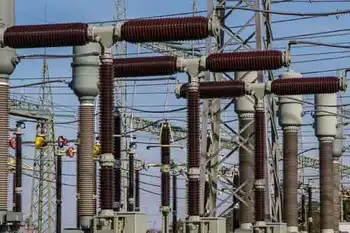How to solve the medical isotope crisis
That’s the immediate cause of the shortage — but it’s not the real reason.
For that, go back to the previous May, in 2008, when Atomic Energy of Canada Limited (AECL) and the government of Canada cancelled the MAPLE 1 and MAPLE 2 reactors.
As an engineer and an executive at MDS Nordion, I was involved in the MAPLE project since its inception. These are state-of-the-art reactors, built solely to produce medical isotopes. My company invested approximately $350-million in MAPLE — a project that would ensure the long-term supply of medical isotopes, serve the needs of patients in Canada and around the world and retain Canada’s position as a leader in nuclear medicine.
If MAPLE had been completed as planned in 2000, to replace the aging NRU, we would not be facing an isotope crisis today. Instead, the project was delayed, then ultimately cancelled. Now, the government has announced that Canada will be out of the medical isotope business altogether, likely by 2016.
The MAPLE reactors faced challenges. But they did work. They created isotopes, theyÂ’re complete and they await final commissioning. These facts have been validated by independent observers. Indeed, numerous international experts have said that the MAPLE reactors could be brought into full service.
The prestigious National Academy of Science Committee stated in a January 2009 report: “The Committee assumes that the worst-case scenario for fixing the MAPLE reactors involves the replacement of the reactor cores. The cost of such replacements would likely be small (tens of millions of dollars) in comparison to the cost of building a new reactor (hundreds of millions of dollars) or refurbishing the (National Research Universal) NRU (also hundreds of millions of dollars according to a representative of Natural Resources Canada).”
But instead of fixing the MAPLE reactors, Canada is getting out of the field. Other nations will benefit from investing in this innovative and growing industry — an industry that started in Canada.
Canada will lose some of our homegrown technical expertise, as professionals follow the jobs in the field right out of the country.
Without a strong Canadian isotope base, it will become harder to conduct collaborations like the ones between MDS Nordion and the University of Ottawa Heart Institute or the University of British Columbia, to make advances in molecular imaging, diagnosis and treatment. MDS conducted more than $150-million of R&D in Canada in 2008 alone. These types of investments are important to our countryÂ’s future.
The global nuclear medicine community needs a secure, long-term supply of medical isotopes. Speaking about the isotope-supply shortage, Dr. Robert Atcher, president of the Society of Nuclear Medicine, recently said that “the patient community is facing one of its greatest threats in modern times.” In Canada, we will be seeking the solution to the isotope-supply threat in different parts of the world, when we can find it in our own backyard.
The solution for new medical-isotope production capacity is right here in Canada. Re-starting the MAPLE project is the right public policy position — for the well being of patients, for progress in nuclear medicine, for innovation in health care and for Canada’s leadership in a vital area of science and technology.
Related News

Sudbury, Ont., eco groups say sustainability is key to grid's future
SUDBURY - Sudbury, Ont., is consuming more power than ever, according to green energy organizations that say meeting the demand will require cleaner energy sources.
"This is the welfare of the entire city on the line and they are putting their trust in electrification," said David St. Georges, manager of communications at reThink Green, a non-profit organization focused on sustainability in Sudbury.
According to St. Georges, Sudbury and northern Ontario can meet the growing demand for electricity to charge electric vehicles (EVs) and smart devices.
According to the Independent Electricity System Operator (IESO), making a full switch from fossil fuels to other renewable…




